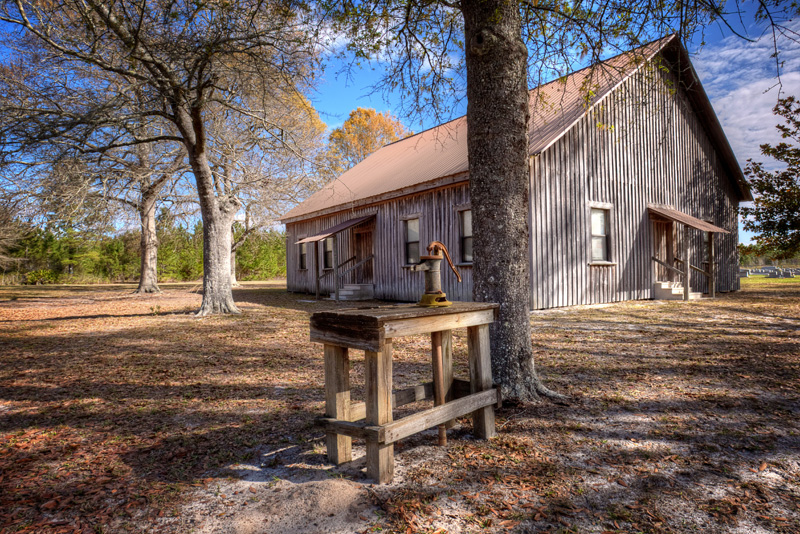The National Endowment for the Humanities (NEH) has awarded $86,471 to a partnership including the Emory Center for Digital Scholarship (ECDS) to develop a platform for collecting digitized community archival materials from rural Georgia audiences. ECDS is partnering with the Georgia Institute of Technology’s Interactive Media Technology Center (IMTC) and Historic Rural Churches of Georgia (HRCGA) on an 18-month project titled “The Digital Drawer: A Crowd-Sourced, Curated, Digital Archive Preserving History and Memory.” Led by IMTC project director Scott Robertson and ECDS project co-director Jesse P. Karlsberg, the project was funded through the NEH’s Digital Humanities Advancement Grants.
The IMTC and ECDS team will design and develop a pilot platform to collect digitized artifacts documenting community memory, moderate these submissions, and make the items publicly accessible. ECDS’s Karlsberg’s work will focus on the interface supporting the moderation and digital preservation of submissions. The pilot Digital Drawer will be put to use by HRCGA to collect and distribute rural Georgia church histories. These dispersed and endangered materials include names, dates, and descriptions of events large and small. The information in church records is useful in understanding the state’s history from the bottom up, documenting important events including:
- The settlement of the state in the wake of the forced removal of Native Americans
- The state’s racial history in the post–Civil War era through the long Civil Rights Movement
- The rise and fall of population centers as the state’s political economy shifted
HRCGA will draw on its extensive network in partnership with Georgia Humanities, Georgia Public Library Service and the Digital Archives of the University of Georgia to reach stewards of these important materials. Once developed, the Digital Drawer will also be released as an open-source platform for use by humanities scholars and the general public to access collections of these historical and often lost voices in our past.
The Digital Drawer is uniquely designed to accommodate the usability needs of older adults who are a key audience for such community-oriented programs. Existing digital asset management platforms have been designed for technically savvy users. This free and accessible digital archive will rely on a cloud-hosted media and metadata repository with data sharing service available to the public through their public libraries or partner websites, and will be built with a participatory design philosophy, adopting a universal design approach to accessibility.
The Digital Drawer is one of two projects awarded NEH funding this month involving ECDS and Karlsberg. ECDS’s Sounding Spirit initiative to publish digital critical editions of southern vernacular sacred music books using Readux received $260,000 from the Scholarly Editions and Translations program.
